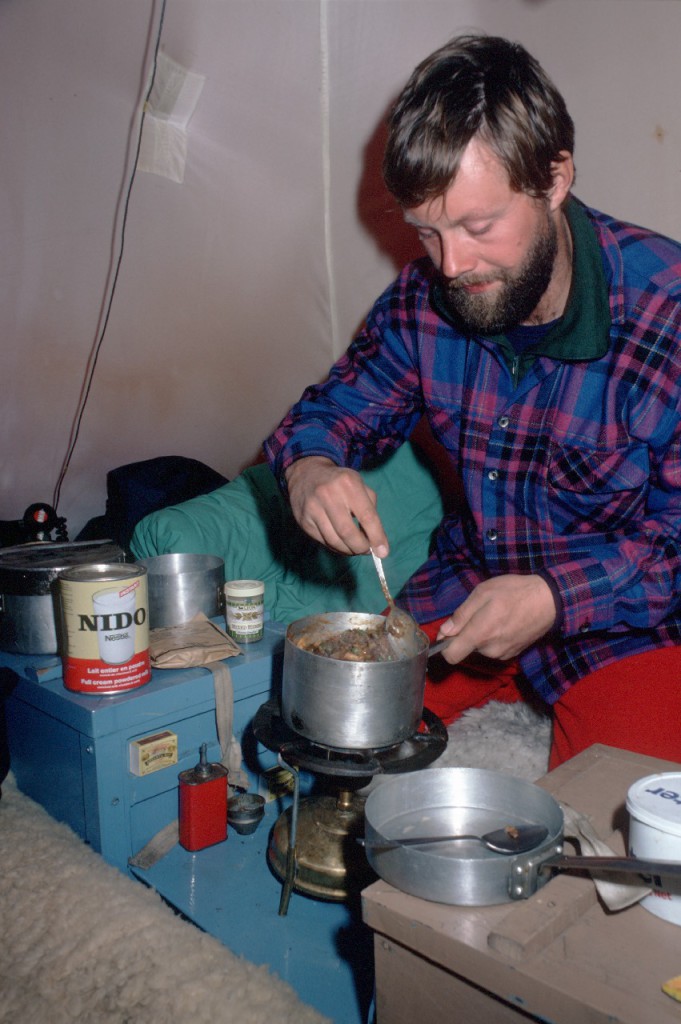Because they may have to cater for more than 100 people, the larger stations have professional chefs. At others, personnel each take turns to cook. At all stations everyone is expected to help with the washing up, cleaning and dealing with the waste.
Stations
Depending on the location, research stations either melt their water from the surrounding snow or extract fresh water from the sea. Rothera has a modern desalination plant which removes salt from seawater. Each station also runs its own bar facilities with a limited supply of alcoholic drinks.
Camping
Not all the research is done at the Stations and small parties often travel to remote field sites. For travelling by sledge or aircraft, the rations need to be light and compact. Whilst camping in the field the meals should be easy and quick to prepare in order to save fuel, and the ration boxes must be well packed to avoid deterioration. BAS has standard sledging ration boxes to last for twenty person-days. They contain food for a balanced and varied diet providing around 3500 kilocalories for each person daily. Such supplies can easily be made to last for longer during less energetic periods (such as lie ups in bad weather), and in favourable summer conditions at low altitudes, when air temperatures are close to or above freezing.

